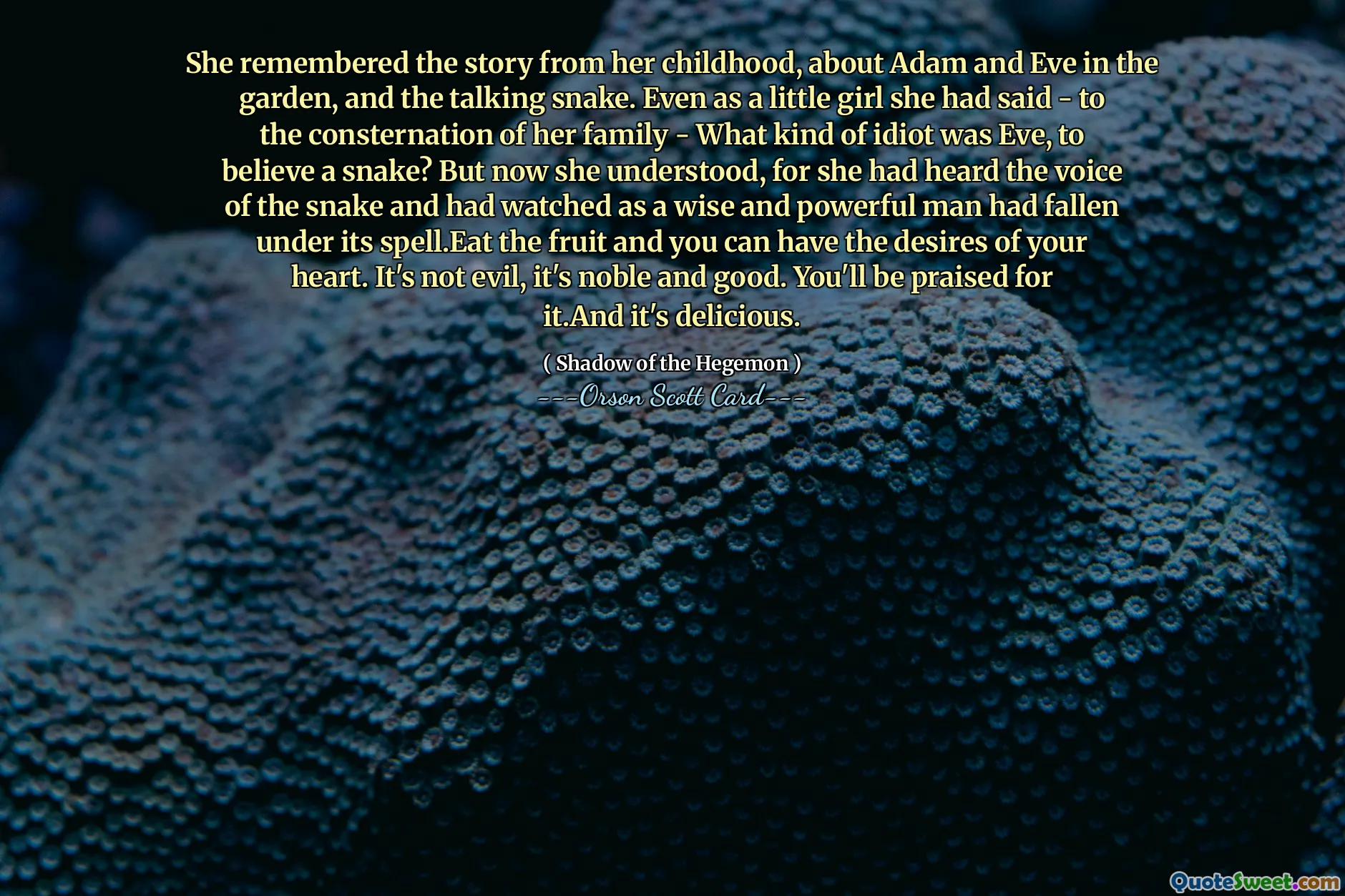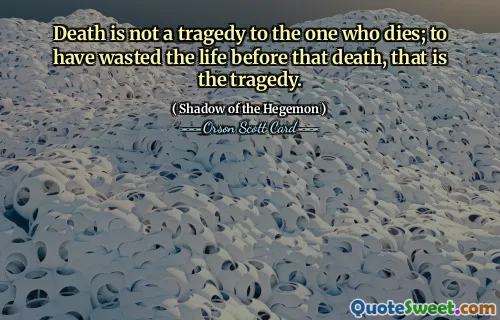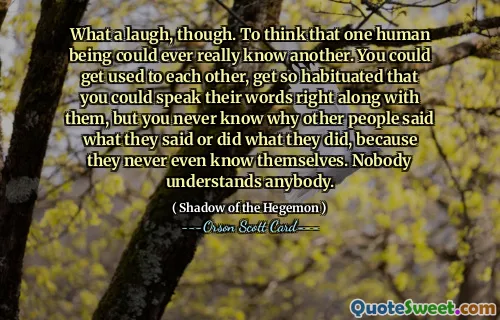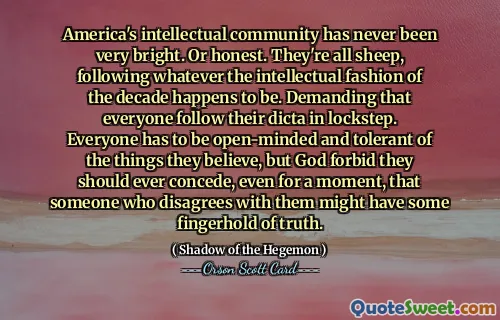
She remembered the story from her childhood, about Adam and Eve in the garden, and the talking snake. Even as a little girl she had said - to the consternation of her family - What kind of idiot was Eve, to believe a snake? But now she understood, for she had heard the voice of the snake and had watched as a wise and powerful man had fallen under its spell.Eat the fruit and you can have the desires of your heart. It's not evil, it's noble and good. You'll be praised for it.And it's delicious.
The protagonist recalls a childhood story about Adam and Eve, particularly the moment when Eve is deceived by a talking snake. As a child, she was baffled by Eve's foolishness for trusting the snake's words. However, with maturity comes understanding, and she now sees how easily one can be swayed by persuasive and attractive arguments, even those that are deceptive.
She draws parallels between her past and present, recognizing how a once wise and powerful figure succumbed to temptation. The snake's enticing message of fulfillment and praise challenges conventional views of good and evil, illustrating the seductive nature of desires that can lead to one's downfall.






